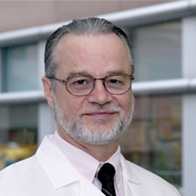Parkinson’s disease and other tremor-causing dysfunctions can be debilitating. Researchers at the University of Minnesota, Twin Cities have developed a treatment that in most cases completely restores motor activity to patients.
 Parkinson’s disease is a nervous system disorder that impairs one’s ability to control their body. Symptoms include lack of facial expressions, slurred speech, and tremors. While the Mayo Clinic asserts that there is no known cure, University of Minnesota neurologist Jerrold Vitek (image left, courtesy, UMN) proposes that there is much that can be done to treat the symptoms.
Parkinson’s disease is a nervous system disorder that impairs one’s ability to control their body. Symptoms include lack of facial expressions, slurred speech, and tremors. While the Mayo Clinic asserts that there is no known cure, University of Minnesota neurologist Jerrold Vitek (image left, courtesy, UMN) proposes that there is much that can be done to treat the symptoms.
He uses a technique called deep brain stimulation (DBS), in which an electrode is implanted into the patient’s brain to stimulate brain circuits. When the placement and electrical current is just right, a neurosurgeon can correct tremors and other disorders of movement.
“The vast majority of Parkinson’s disease patients see marked improvement in their motor control, and now it’s being used to treat dystonia and obsessive-compulsive disorder,” says Vitek in a recent University of Minnesota news article.
This high success rate is largely due to Vitek’s own skill in pinpointing the perfect location for the electrodes. As the electrode is inserted into the brain, it picks up electrical signals from neurons, which Vitek maps to characteristic sounds. By listening to the sounds of the surgery, Vitek ensures the probe reaches exactly the right place. This is especially important because missing the perfect location by even a millimeter can cause severe side effects.
Vitek believes that DBS is a powerful tool that can be used for movement disorders beyond Parkinson’s and perhaps to even more disorders. In his words, he wants to “lead the way in new technology, provide the best clinical outcomes, and treat conditions like addiction and depression, as well as other movement disorders. We could have an effect on any disorder related to brain circuitry by finding the affected circuit, characterizing what’s wrong with it, and determining where in the brain it is best to intervene.”
Support for this work came in part from a MnDRIVE grant from the Legislature. The University of Minnesota boasts an $830 million research and development marketplace fueled by studies like this one. For more information about grants and funding for UMN, read our free University of Minnesota Funding Statistics Report accessible via the link below.
Biotechnology Calendar, Inc. hosts two of our BioResearch Product Faire™ events in the Minnesota area. We offer the BioResearch Product Faire™ Event in Rochester, Minnesota and the BioResearch Product Faire™ Event at The University of Minnesota, Twin Cities each year. The latter event is held directly on the thriving University of Minnesota, Twin Cities Campus. Biotechnology Calendar is a full service event marketing and planning company producing on-campus, life science research trade shows nationwide for the past 20 years. We plan and promote each event to bring the best products and services to the finest research campuses across the country. To attend one of these shows, please stay tuned to hear about our 2016 schedule. In the meantime, feel free to peruse our 2015 show schedule.


